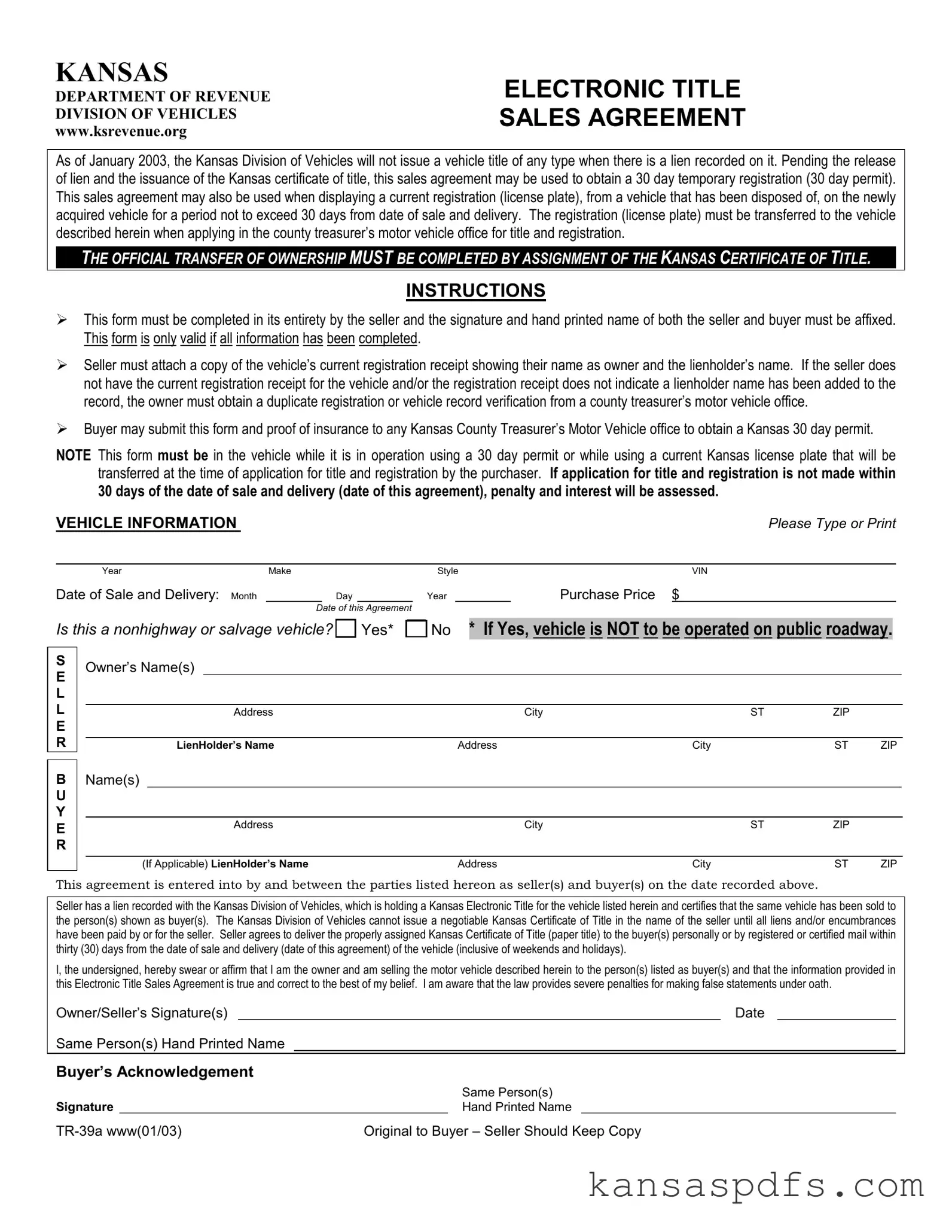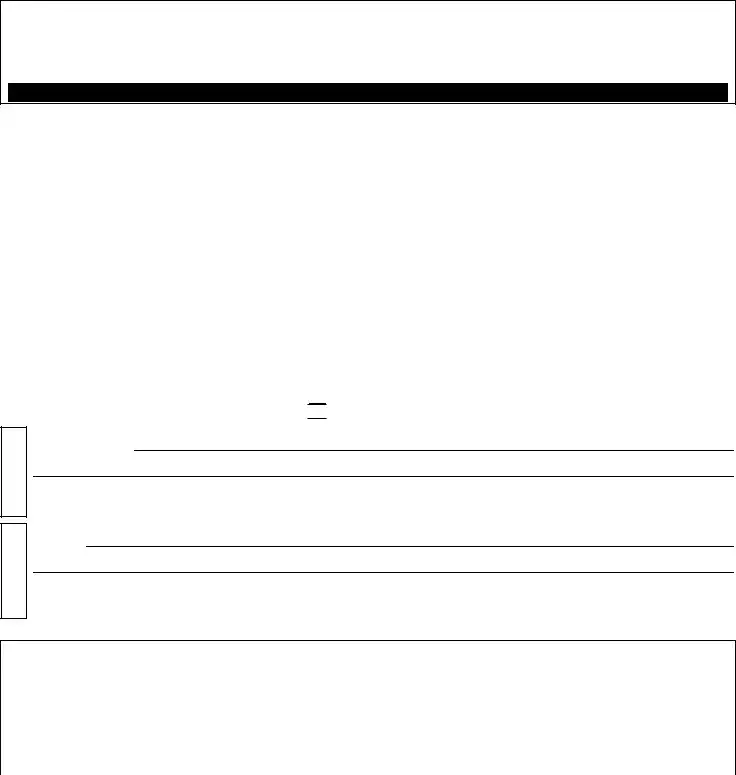What is the Kansas TR-39A form?
The Kansas TR-39A form is an Electronic Title Sales Agreement provided by the Department of Revenue, Division of Vehicles. It's used in situations where a vehicle’s title cannot be immediately issued due to a lien on the vehicle. The form serves a dual purpose: it can be used to obtain a 30-day temporary registration permit and to facilitate the transfer of a current registration from a disposed vehicle to a newly acquired vehicle for up to 30 days from the sale and delivery date.
When is the Kansas TR-39A form necessary?
This form becomes necessary when the Kansas Division of Vehicles is holding a Kansas Electronic Title for a vehicle due to a recorded lien and cannot issue a negotiable Kansas Certificate of Title in the name of the seller. It allows the seller to confirm the sale of the vehicle to the buyer, and for the buyer to apply for a temporary 30-day registration to use the vehicle legally on public roads.
How does one complete the Kansas TR-39A form?
To complete the TR-39A form, both the seller and the buyer must fill out the form in its entirety, including vehicle information, the sale, and delivery details, purchase price, and information about the vehicle’s status as a nonhighway or salvage vehicle if applicable. Both parties must also provide their names, addresses, and signatures. For the form to be valid, the seller must attach a copy of the vehicle’s current registration receipt showing their name as the owner and the lienholder’s name, if applicable.
What documents are needed along with the TR-39A form for a temporary registration?
Alongside the TR-39A form, the buyer must submit proof of insurance to any Kansas County Treasurer’s Motor Vehicle office to obtain a Kansas 30-day permit. If the seller lacks the current registration receipt or if it doesn't show the lienholder's name, they must obtain a duplicate registration or vehicle record verification from a county treasurer’s motor vehicle office.
What happens if the Kansas TR-39A form is not submitted within 30 days of the sale?
If the application for title and registration is not completed within 30 days from the sale and delivery date, penalties and interest will be assessed. It is crucial that the buyer submits this form and proceeds with the registration process within this timeframe to avoid any additional charges.
Can the Kansas TR-39A form be used for vehicles intended to be operated on public roadways?
Yes, vehicles intended to be operated on public roadways can be covered by the TR-39A form, provided they are not classified as nonhighway or salvage vehicles. For nonhighway or salvage vehicles, which are not to be operated on public roads, the TR-39A form still facilitates the sale but underlines that these vehicles cannot be used on public thoroughfares.




